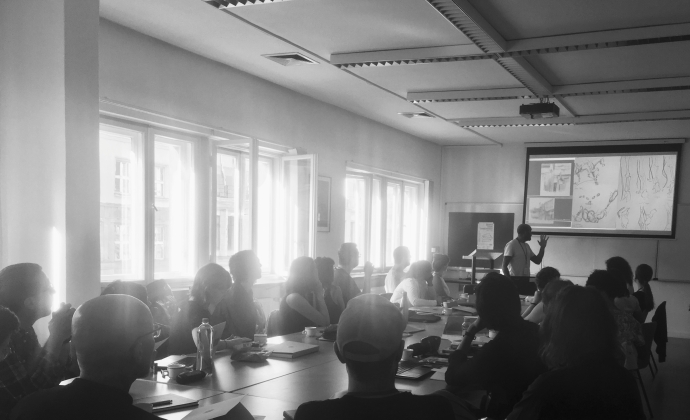Sebastian Bührig presents a critique of housing blocks from his research at Leipziger Straße beyond the “dictatorship of lines” and is interested in the “interfaces of communality,” the interpersonal and inbetween (buildings, people, city). Life in a high-rise is anonymous. That’s the prejudice. The high houses from the outside: upright in file. A strict grid puts…
Read More








